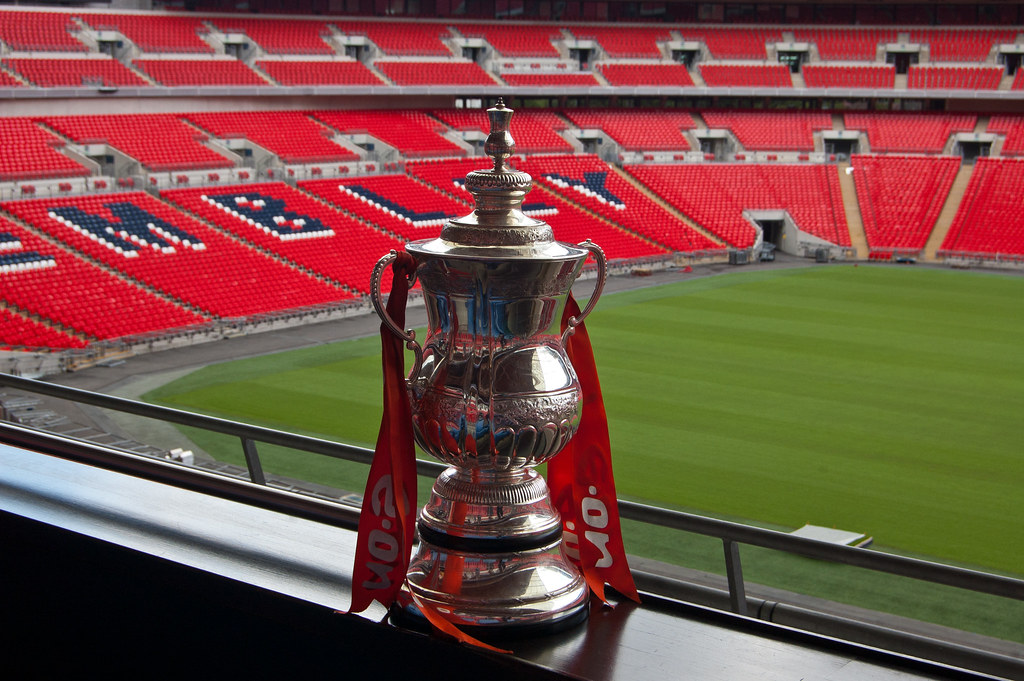There’s been a lot of talk about the FA Cup over the past few years. A rise in squad rotation from top teams and declining attendances at the highest level have led to many questioning whether the world’s oldest tournament has lost its magic. Any doubters need look no further than last weekend’s third round results to see that the magic of the cup is very much still alive.
For the last 150 years the fabled trophy has been lifted above the heads of the eventual winners at grounds across the UK from the Kennington Oval, to Crystal Palace, Old Trafford, the Millennium Stadium and of course both the old and new Wembley’s. Those historic moments of glory will always be remembered and make the headlines come the end of the season but the glitz and glamour of cup final day are just one part of what makes this competition so special and so unique.
Many fans are simply unaware of the scale of the competition. For most, it begins on the fantastic spectacle that is third round weekend in January when clubs from the top two divisions enter the hat. For the vast majority of sides though, the long slog to Wembley begins right back in August. 736 sides enter the hat and there are six preliminary and qualifying rounds to navigate before a club even makes it to the ‘First Round Proper’. Most never will but there is an undeniable magic to the fact that a game involving two non-league clubs at your local football ground in early August is a part of the same competition that culminates in front of 80 000 at one of football’s greatest grounds in May.
The romance is key to the importance of the cup but truly what makes it so vital is the financial windfall that it brings to clubs away from the top end of the footballing pyramid. Now more than ever lower league and non-league sides are in financial distress across the country, reeling from the wrecking-ball of the COVID-19 pandemic. Without the TV deals of the top divisions to fall back on and with little to no governmental support, the cancellation of seasons and lack of gate receipts risked decimating the grassroots game.
One cup run can change all that. One cup run and one televised game can transform the fortunes of a non-league side for years to come. Aside from TV deals, a third-round win is worth £86 000. That might be peanuts to Premier League giants but for a side like Kidderminster Town who triumphed over Reading last week it is game-changing. The £160 000 they have already earnt from the competition this season opens up a world of possibilities from new training pitches, to changing room refurbs, to physio tables and a new bar. Plymouth Argyle’s trip to Stamford Bridge alone in the Fourth Round will earn them £1 million. Whilst top clubs are rotating squads and complaining about cuts in prize money, those at the other end of the pyramid are desperate to take whatever help they can get.
This year, after last season’s third round was played out behind closed doors, felt like a return to the old days and yet again served up countless historic upsets. It all kicked off on Saturday afternoon with the three-o’clock kick-offs. Kidderminster Town of the sixth tier served up perhaps the biggest shock of the day when they stunned Championship side Reading with a 2-1 comeback win. This was eclipsed only by the stunning result at St. James Park where the world’s richest club paraded their new star signing Kieran Trippier and a full-strength side only to fall to a 1-0 defeat at the hands of League One strugglers Cambridge United. Elsewhere non-league’s Boreham Wood comfortably beat AFC Wimbledon 2-0, League Two Hartlepool swept aside Championship Blackpool and Nottingham Forest strode to a famous 1-0 win over Mikel Arteta’s Arsenal under the Sunday night lights at the City Ground.
These results might be forgotten in a couple of weeks by the casual Premier League fan but for those involved the memories will be timeless and for the average non-league player who has to work several jobs just to pay the bills, the chance to play in front of tens of thousands at a Premier League ground is once-in-a-lifetime.
So, next time you find yourself lamenting the fixture congestion crisis facing your favourite team as it tries to juggle five competitions at once just remind yourself which one was there first and why its magic very much lives on.
Dave Gunn/ CC BY-NC 2.0 via Flickr



